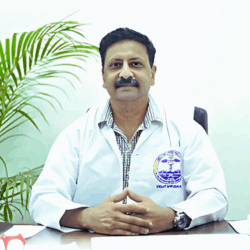
Ajay Mallick
AIIMS Kalyani, IndiaPresentation Title:
CA oral cavity prognosis - Is there a protagonist tumor marker?
Abstract
Oral squamous
cell carcinoma (OSCC) is a prevalent malignancy with significant morbidity and
mortality, particularly in regions with high tobacco and alcohol use. Early
detection and precise prognostication remain critical challenges. Biomarkers
offer valuable insights into the pathogenesis, progression, and therapeutic
responses of oral cancer and have emerged as pivotal tools in improving
diagnosis, monitoring, and treatment strategies.
Biomarkers in
oral cancer are classified into six main categories: genetic, epigenetic,
transcriptomic (mRNA), microRNA (miRNA), protein, and salivary biomarkers.
Genetic alterations such as TP53 mutations and CDKN2A inactivation are common
and correlate with tumor progression. Epigenetic changes, including promoter
hypermethylation of tumor suppressor genes like p16, MGMT, and DAPK1, influence
gene silencing and disease aggressiveness. Transcriptomic markers like Cyclin
D1, MMP-9, and VEGF facilitate cellular proliferation, invasion, and
angiogenesis.
miRNAs,
particularly oncogenic miR-21 and tumor suppressive miR-375, regulate
cancer-related pathways and are detectable in both tissue and saliva. Protein
biomarkers such as p53, Ki-67, EGFR, and HER2 serve as indicators of tumor
proliferation and therapeutic targets. Salivary biomarkers—including IL-6,
IL-8, MMPs, and CD44—are gaining traction for their non-invasive applicability
in screening and monitoring.
Recent advances
in liquid biopsy, spatial proteogenomics, and AI-integrated biomarker panels
enhance diagnostic accuracy and guide personalized therapy. Promising tools
like circulating tumor DNA (ctDNA), salivary miR-196b, and multiplex miRNA
assays show high sensitivity and specificity for early detection.
In conclusion,
biomarkers in oral cancer represent a paradigm shift toward precision oncology.
Their integration into clinical workflows holds the potential to revolutionize
patient outcomes through early detection, tailored treatments, and real-time
disease monitoring.
Biography
Ajay Mallick is currently serving as Professor and Head of the Department of ENT at AIIMS Kalyani, and also holds the additional charge of Medical Superintendent. He graduated from the Armed Forces Medical College (AFMC) in 1985, completed his postgraduation in ENT from Delhi University in 1995, and earned a Diploma in Hospital Administration in 2014. With over 35 years of experience in the Armed Forces Medical Services and more than 20 years of academic teaching, he has guided MBBS, MS, and DNB students. Dr. Mallick is a designated hospital inspector for the National Board of Examinations (NBE) and Medical Council of India (MCI). He actively contributes as a reviewer for reputed international journals and ENT publications. He has served as an examiner and paper setter for NEET, DNB, and MS (ENT) exams. His awards include the Chief of Naval Staff Commendation, PHONOCON Gold Medal (2019), and an international presentation in the Maldives (2025).

